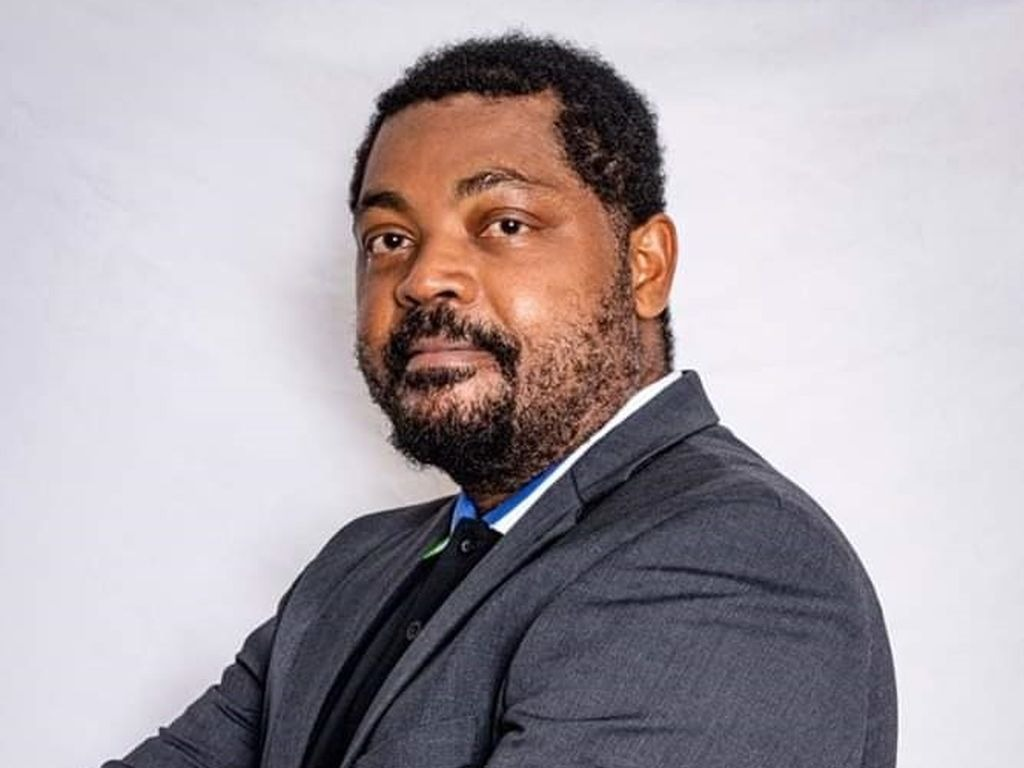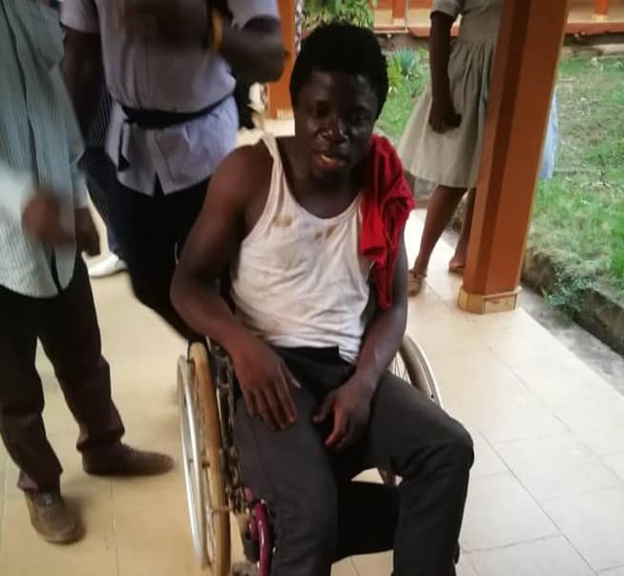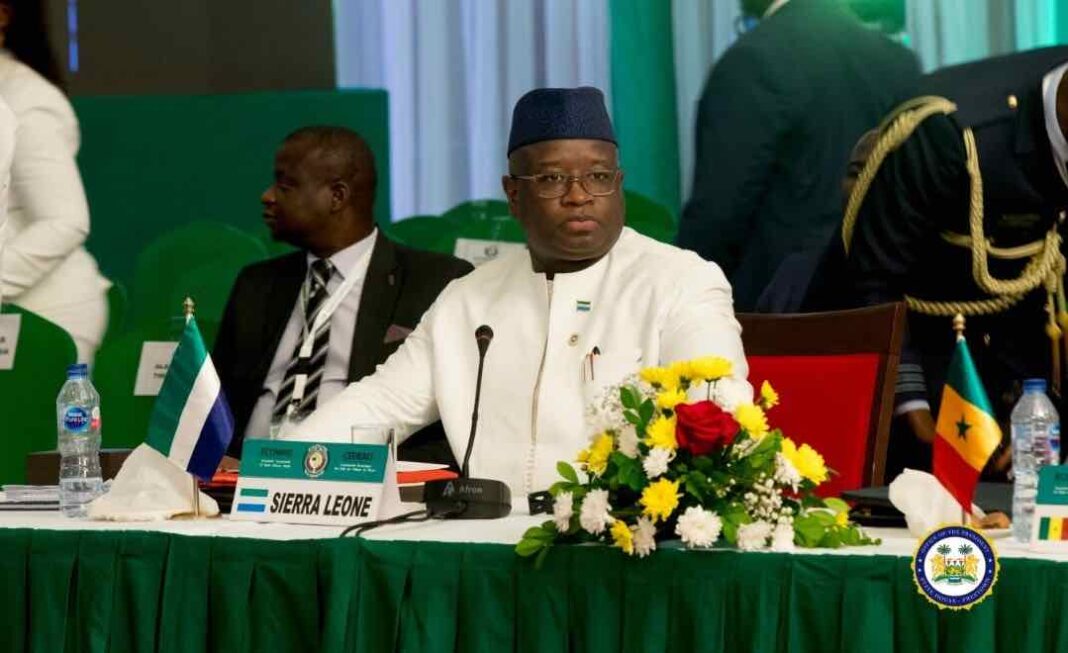Sierra Leone repealed its criminal libel and seditious laws (Part V of the Public Order Act of 1965) in 2020. Thereafter, press freedom has been expanding in the country with the progress story punctuated by improvements in the legal environment, development of press freedom watchdog institutions and a consolidation of the architecture of these institutions.
And all of these positives have been happening amidst fine cooperation between government and the Sierra Leone Association of Journalists (SLAJ), a trade union of journalists in the country.
However, there still remain troubling chapters in the story – physical attacks, threats, judicial harassment, summons, arrests and detentions, and intimidating interrogation of journalists by government institutions still happen in Sierra Leone.
Then there is the problem of the country’s telecommunications law still empowering officials to revoke the licenses of broadcast media houses at the discretion of the authorities.
Consequently, two years after Sierra Leone repealed its criminal libel law, the state of press freedom remains an admixture of the good, the bad and the ugly.
The good
On the 12th of September 2022, executives of the SLAJ met with the Minister of Information, and Communications, Mohamed Rahman Swaray in Brookfields, Freetown and struck a conversation that threw up many exciting positives for press freedom.
President of the SLAJ, Ahmed Sahid Nasralla cited the repeal of the criminal libel law (in 2020) as one of a number of good developments from a fine relationship that SLAJ has with the government. This achievement has since served as launch pad for other positives including the hosting of a media viability and investment conference.

Nasralla reported that the conference, which was funded by the BBC Media Action through the Government of Sierra Leone, has led to Sierra Leone being listed as one of 17 countries to benefit from the International Fund for Public Interest Media (IFPIM).
In anticipation of the windfall from the IFPIM, Nasralla said SLAJ and other media stakeholders have been working with the Ministry of Information and Communications to put in place structures to manage and administer the local counterpart of the IFPIM that the Government will also commit funds to.
Also, he recounted, a Multi Stakeholders Advisory Board and a Technical Working Group have been set up in advance in that regard. These groups, he added, will be responsible for follow-up on, and implementation of the other recommendations that came out of the historic media conference.
The government, in addition, has instituted an annual subvention to SLAJ as a way of strengthening the press association champion the cause of journalists and journalism in the country.
Probably, the most important fruit that has yielded from the cooperation between the government and SLAJ is the enactment of the Cyber Security and Crimes Act 2021. This law which now governs the cyber space in Sierra Leone provides guidelines on online conduct.
Also, under a USD50 million World Bank grant, the Government of Sierra Leone is identifying all critical national information infrastructure to declare critical. Meanwhile, a Data Protection Bill is to be tabled before Parliament. And as part of the general progress, the government has committed to help the SLAJ with state lands for the construction of a national office and satellite offices for the Association in the Eastern and Southern regions.
On November 2, 2021, SLAJ signed a Memorandum of Understanding with the national security administration to commemorate the international day to end impunity for crimes against journalists after a round table dialogue on law and order. Around that same time, Sierra Leone signed the Global Pledge on Media Freedom, becoming the fifth country in Africa to commit to the values and principles of Media Freedom Coalition.
In 2021, Sierra Leone’s ranking on the world press freedom index improved by ten places from 2020’s position of 85 out of 180 countries to 75 out of 180.
However, in spite of the convivial relationship between government and SLAJ, there are concerns.
The bad
Certain aspects of the Cyber Security and Crimes Act have the potential to infringe on citizens’ right to free expression, especially when online. in this regard, Section 44 of the Act is particular, harbor various offenses that could easily be used unfairly against journalists.
Also, it has been of concern that media and civil society representatives are not included on the Advisory Council provided for in the Act.
But probably, the most problematic of the bad things conspiring against press freedom in Sierra Leone are the country’s telecommunications laws. Specifically, Sections 30 and 65 of the laws allows the media regulator, National Telecommunications Commission (NATCOM), to suspend or cancel broadcast licenses for various violations. The list of violations include fraud, treason, and, according to the law, “where the suspension or cancellation is in the public interest.” This particular part of the law is very worrying because it amounts to arming the authorities with power to close down stations at whim.
Also, Section 65 requires broadcasters to obtain “a general or specific license” to operate a radio transmitter. On the basis of this law, NATCOM suspended the licenses of privately owned broadcast networks Star Radio and Star TV for over two weeks in August, 2022 and denied workers access to the broadcaster’s transmitters in Brookfields, a neighborhood in western Freetown. This was for the alleged nonrenewal of broadcast licenses.
It remains a concern that the government has failed to pass a Data Protection law which is long overdue after the passage of the Cyber Security and Crime Act. Similarly, a National Computer Security Incidence Response Coordination center, which is supposed to manage cyber security incidents, is still yet to be set up.
Meanwhile, in spite of the 2020 repeal of the criminal libel law and an increasingly cosy relationship between the SLAJ and the government, media practitioners strangely, continue to suffer arrests, detentions and crude attacks in Sierra Leone.
The Ugly
Journalists continue to suffer brutalization at the hands of all manner of persons, from private citizens to security agents. In addition to assault and battery, and even murder attempts, journalists have also suffered intimidations and summons over their work.
On February 17, 2022, journalist Alusine Antha, was attacked by about 30 people in the western city of Waterloo, while he was covering a meeting over a land dispute.
In April 2022, TV reporter, Gibril Gottor, was the subject of what a suspected assassination attempt. His home was doused in petrol in what appears to be a planned arson against him. It is believed that he became a target due to his investigation of a number sensitive issues, including the alleged rape of a minor by a police officer and the extortion of fishermen by naval personnel.
In the course of his investigations, Gibril had also received threats and a number of court summonses. As a result of the suspected arson attempt, he has been forced to stay away from his family in order to not endanger them.

Earlier, in April 2020, journalist Fayia Amara Fayia of the Standard Times newspaper, was attacked and beaten up by about 10 soldiers in Sierra Leone’s eastern Kenema city. He was hit with guns and kicked according to a statement by the Sierra Leone Association of Journalists, a local press freedom group. Fayia whose phone was seized in the attack was set upon after he photographed a new COVID-19 quarantine center. Later he would be arrested and charged with allegedly assaulting a soldier and District Head Mohammed O. Sesay, a local official who was at the scene and arraigned before court.
On July 2, 2022, four Sierra Leone soldiers slapped, punched, and kicked broadcast journalist Maada Jessie Jengo on various parts of his body, and also slashed his face with a sharp object.
Meanwhile, the country’s media regulator, NATCOM, in August 2021, suspended the licenses of privately owned broadcast networks, Star Radio and Star TV, over alleged default in the renewal of broadcast licenses.
In October 2021, The Times newspaper editor, Salieu Tejan, received death threats while President Julius Maada Bio reportedly made moves to get him arrested over his critical reporting. Mr. Tejan was forced to flee the country to escape the President.
The rundown
The press freedom environment in Sierra Leone is certainly a mix of the good, the bad and the ugly so that even though commendations may be in order for the government such commendations can only be given, tinged with sadness.
To improve the situation, the government and stakeholders’ have their duties cut out for them. Tougher muscle certainly needs to be brought on perpetrators of attacks on journalists. Government needs to have a second look at the aspects of the cyber law that create potential for people to be arrested for expressing themselves online while Sections 30 and 65 must absolutely be repealed to disarm the NATCOM of the power to capriciously close down broadcast stations.
Of course, SLAJ should take advantage of its cosy relationship with government to nudge government into undertaking reforms. Also, it should instigate public educational campaigns on the need for a truly free press environment in Sierra Leone while media houses must beef up security for their journalists.





